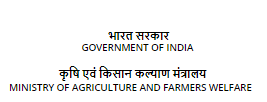Inactivated low pathogenic avian influenza (H9N2) vaccine for chickens
Background:
Infections of low pathogenic avian influenza virus (H9N2 subtype) cause huge economic losses to the poultry farmers/industry in India due to reduced egg production (up to 50%), respiratory illness and mortality (5 to 6%). In India, infections with H9N2 virus in poultry have been reported since 2003 and is widely prevalent. However, no vaccine is available so far against the circulating H9N2 viruses in India which belong to G1-lineage. Although commercial vaccines are available abroad, antigenic divergence between the vaccine strain and the currently circulating field strains in India may result in poor antigenic coverage leading to the vaccine failure. As protection provided by imported vaccine against the strains circulating in India is uncertain, there is a pressing need of an indigenously developed vaccine which can provide protection against the circulating H9N2 virus strains in India.:
Technology Details:
The NIHSAD inactivated low pathogenic avian influenza (H9N2) vaccine for chickens is based on inactivated whole virus using a field isolate from India and is intended for the prevention and control of H9N2 virus infection in chickens that can reduce the economic losses of poultry farmers/industry. This is the first indigenously developed low pathogenic avian influenza (H9N2) vaccine in India and has passed the sterility, safety and efficacy testing in experimental trials in SPF and commercial layer chickens under laboratory conditions. The vaccine is inoculated via intramuscular route in to thigh muscle of chickens in 0.5 ml dose/ bird followed by a booster dose on 21st-day of primary inoculation. It provides protective immunity in chickens for 6 months following vaccination and covers all the antigenically divergent strains of H9N2 low pathogenic avian influenza virus currently circulating in India. Thus the vaccine has several advantages over the imported vaccines. Besides, the candidate vaccine virus grows to a high titre in embryonated chicken eggs. The vaccine will help in prevention and control of the infections with H9N2 low pathogenic avian influenza virus in chickens, specifically in layer and breeder chickens thereby reducing production losses and improving the livelihood of poultry farmers.


